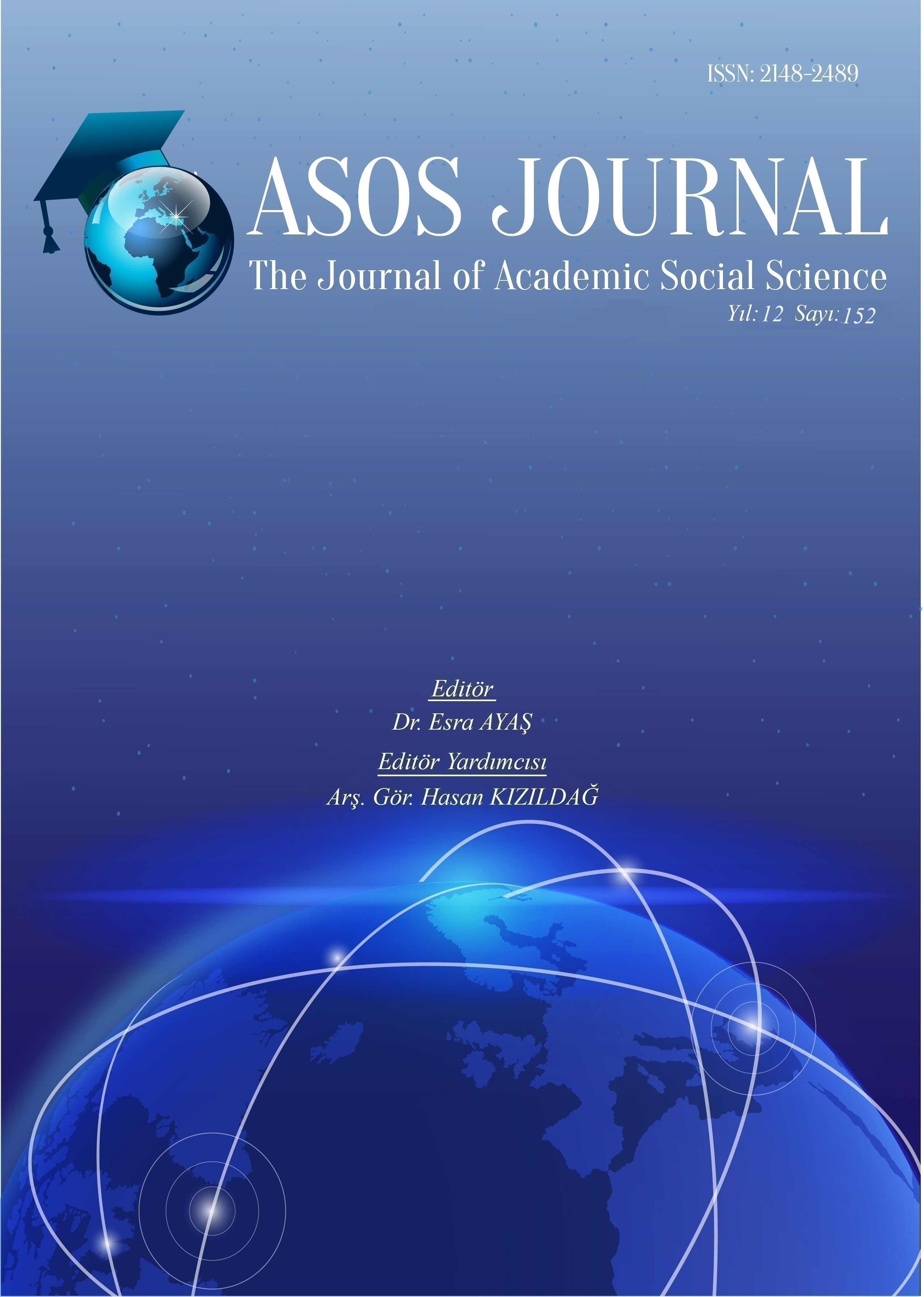KIRIKKALE İLİNİN KENTLEŞME SÜRECİNİN MAKİNA VE KİMYA ENDÜSTRİSİ KURUMU (MKEK) ÖZELİNDE DEĞERLENDİRİLMESİ
Author :
Abstract
Makine ve Kimya Endüstrisi Kurumu, 1925’lerden başlayan süreçte Kırıkkale’nin ekonomik, sosyal ve kültürel gelişimine damgasını vurmuş bir kuruluştur. Bu kuruluşun kentleşme sürecine yeni girmiş genç bir kentin, kent olma yolunda yaşadığı sorunlarda da payı büyüktür. Bu noktada, Makine ve Kimya Endüstrisi Kurumunun kentleşme sürecinde ile olumlu, olumsuz etkileri ve kentin bugününde etkilerinin ne kadar devam ettiği noktasında ilk olarak literatür taraması yapılmış, sonrasında kent özelinde yapılan değerlendirmelerle ortaya konulmaya çalışılmıştır. Kurumun; ekonomik, sosyal ve kültürel yönden kentin gelişiminde önemli katkıları olduğu yadsınamaz bir gerçektir. Bu gerçeklik özellikle nüfus artışında kendini göstermektedir. Nüfus artişiyla birlikte ortaya çıkan plansız yerleşim biçimleri kurumun kent kentsel gelişimine ilk olumsuz yansıması olarak ortaya çıkmıştır. Bu durum gelişmekte olan bir kentin uzun vadede yaşayacağı gecekondulaşma gibi önemli bir sorunu gündeme getirmiştir. Belirtilen noktalarda hareketle; bu çalışma yeni gelişen kentlerde sanayileşmenin paralelindeki sorunlar noktasına vurgu yapmak açısından da önemli olmaktadır.
Keywords
Abstract
Starting from 1925, the Machinery and Chemical Industry Institution has left its mark on the economic, social and cultural development of Kırıkkale. This institution also has a great share in the problems experienced by a young city that has just entered the urbanisation process on the way to becoming a city. At this point, the positive and negative effects of the Machinery and Chemical Industry Institution in the urbanisation process and the extent to which its effects continue in the city today were first reviewed in the literature, and then it was tried to be revealed with evaluations made specifically for the city. It is an undeniable fact that the institution has made significant contributions to the development of the city in economic, social and cultural aspects. This reality manifests itself especially in population growth. The unplanned settlement forms that emerged with the population increase emerged as the first negative reflection of the institution on the urban development of the city. This situation has brought to the agenda an important problem such as slumming, which a developing city will experience in the long term. Based on the points mentioned, this study is also important in terms of emphasising the problems parallel to industrialisation in newly developing cities.





